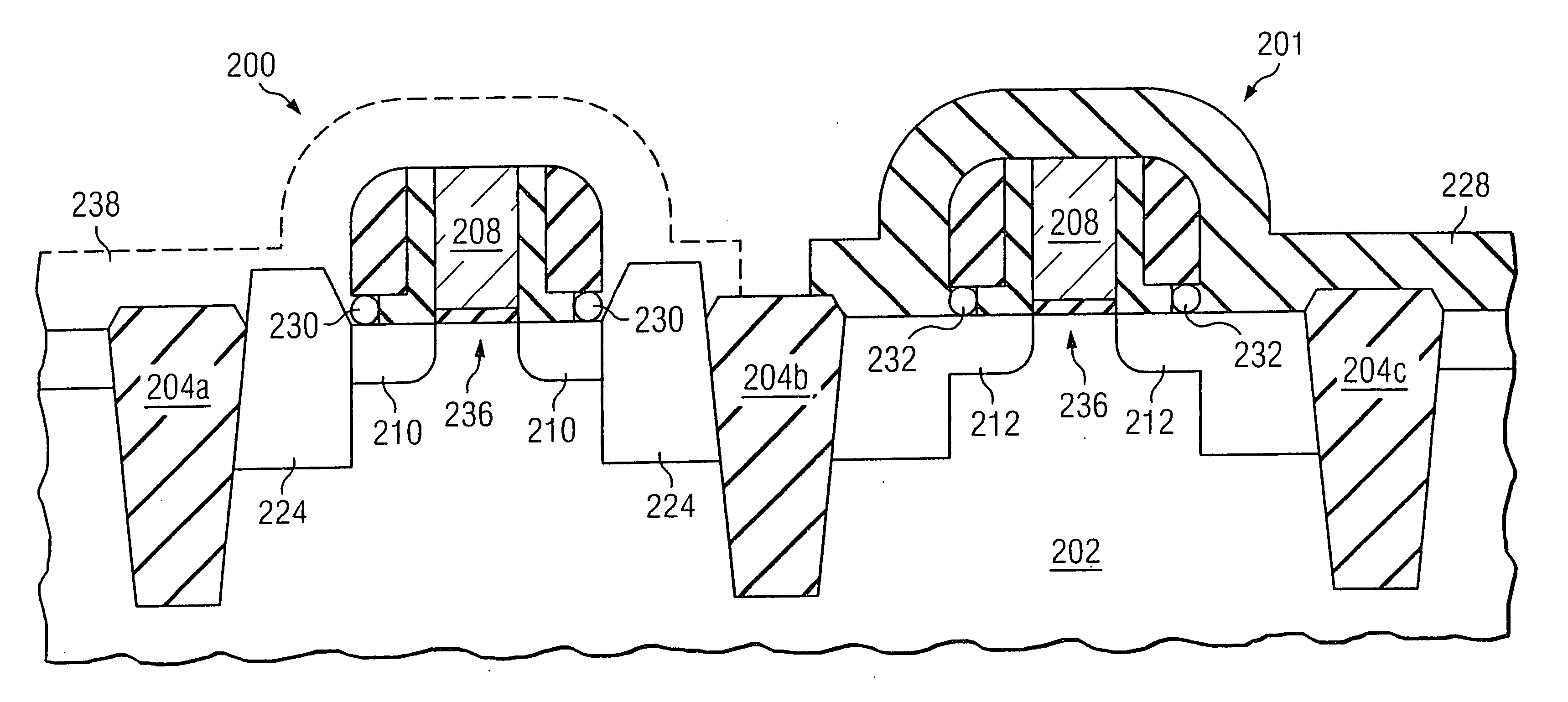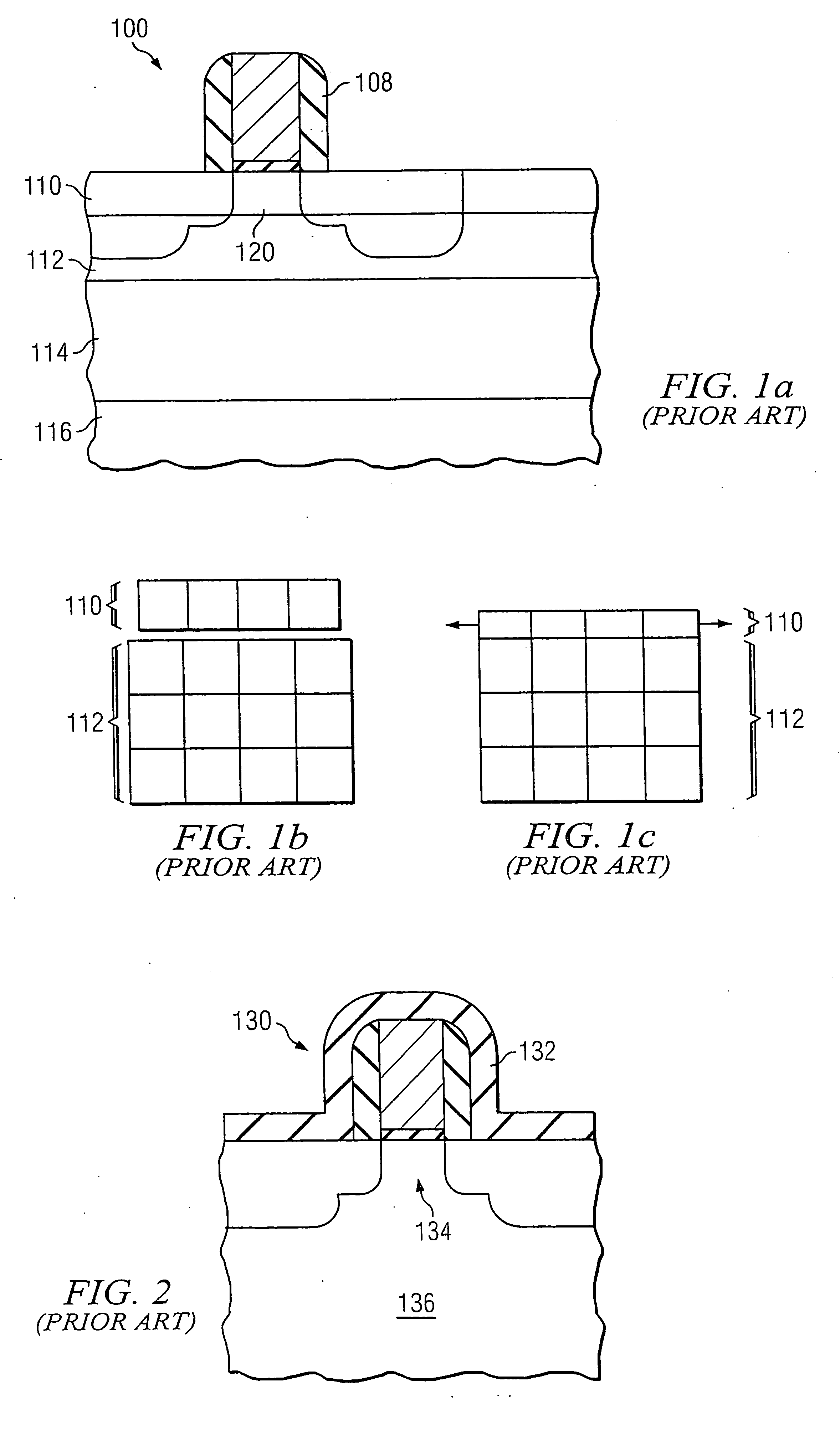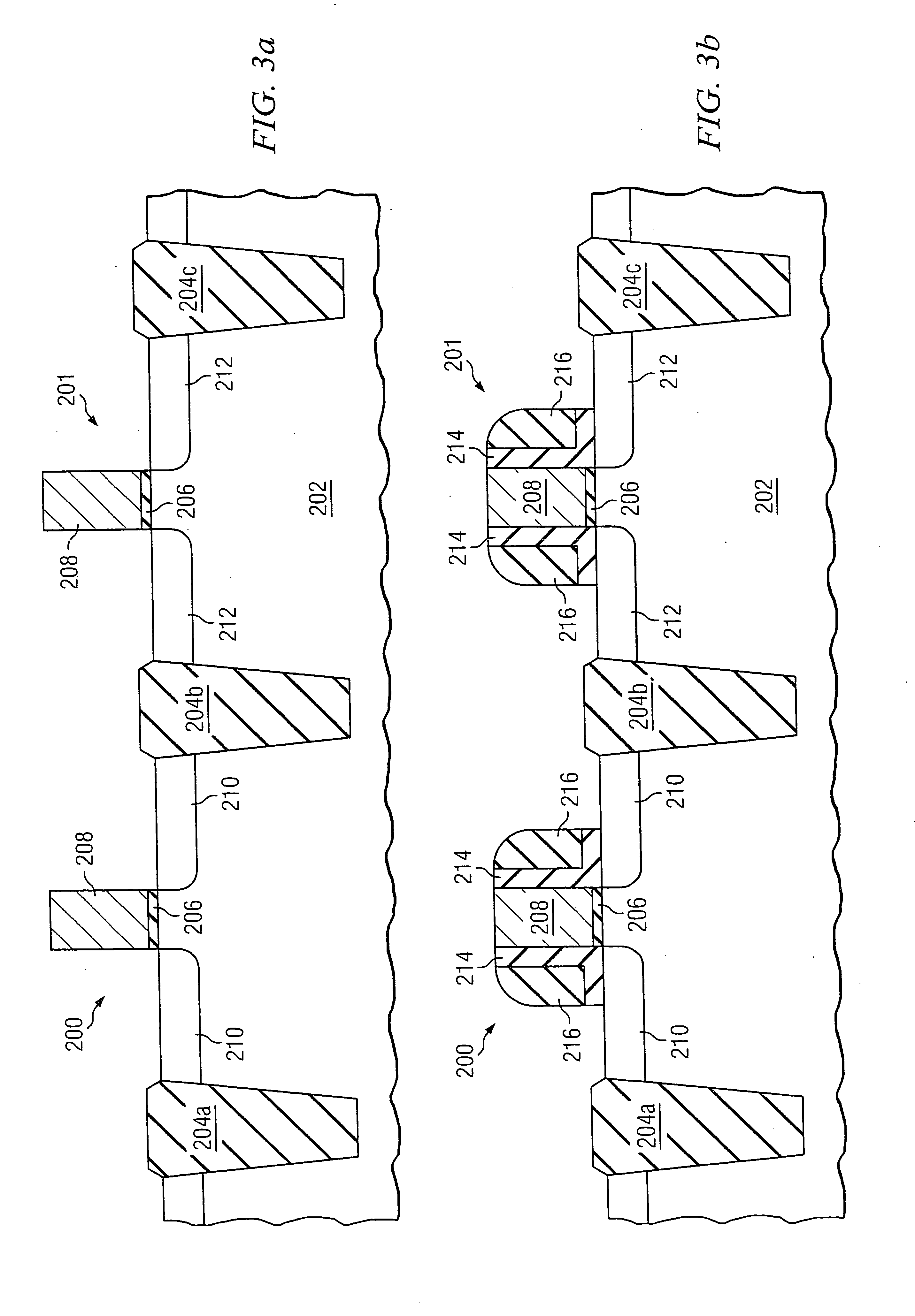Strained channel complementary field-effect transistors and methods of manufacture
a complementary field-effect transistor and strain-coupling technology, which is applied in the direction of basic electric elements, semiconductor devices, electrical equipment, etc., can solve the problems of high defect density of substrates, high cost of approach, and strain-relaxation
- Summary
- Abstract
- Description
- Claims
- Application Information
AI Technical Summary
Benefits of technology
Problems solved by technology
Method used
Image
Examples
Embodiment Construction
[0020] The making and using of the presently preferred embodiments are discussed in detail below. It should be appreciated, however, that the present invention provides many applicable inventive concepts that can be embodied in a wide variety of specific contexts. The specific embodiments discussed are merely illustrative of specific ways to make and use the invention, and do not limit the scope of the invention.
[0021] The preferred embodiment of the present invention relates to the field of semiconductor devices, and more specifically, to the manufacture of strained n-channel and p-channel field effect transistors with separately optimized performance.
[0022] With the preferred embodiment it is possible to separately optimize the performance of n-channel and p-channel transistors by engineering the nature and magnitude of the strain in the channel region of the transistors. For example, it is desirable to induce a tensile strain in the channel of the n-channel transistor in the so...
PUM
 Login to View More
Login to View More Abstract
Description
Claims
Application Information
 Login to View More
Login to View More - R&D
- Intellectual Property
- Life Sciences
- Materials
- Tech Scout
- Unparalleled Data Quality
- Higher Quality Content
- 60% Fewer Hallucinations
Browse by: Latest US Patents, China's latest patents, Technical Efficacy Thesaurus, Application Domain, Technology Topic, Popular Technical Reports.
© 2025 PatSnap. All rights reserved.Legal|Privacy policy|Modern Slavery Act Transparency Statement|Sitemap|About US| Contact US: help@patsnap.com



